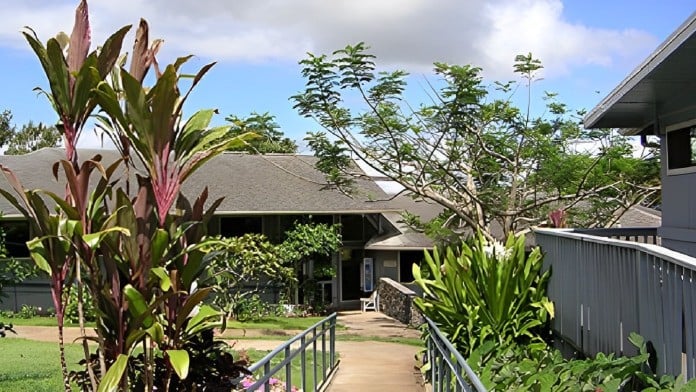About Maui VA Clinic
Maui VA Clinic in Kahului, Hawaii, is a community based outpatient clinic that supports veterans’ health and wellbeing through accessible care. They offer primary care alongside specialty services like senior care for aged veterans. The most outstanding attribute of this clinic is the specialized services they provide for the underserved and marginalized veteran communities. They have programs for veterans experiencing homelessness, the LGBTQ+ veteran community and women veterans. The clinic accepts Medicaid, Medicare and TRICARE. Financial aid is accessible as well if you meet eligibility requirements.
Recovery In Kahului
Maui VA Clinic is situated on Hoohana Street in Kahului. This location is accessible via Honoapiilani Highway which links Kahului to the western side of Maui including Wailuku and Lahaina. The Mokulele Highway is just three miles south of the clinic and offers access to other areas of Maui, including Kihei and Wailea. Veterans from these nearby cities benefit from the services provided in these clinics.
Maui Bus offers public transit options with several routes passing through Kahului. The Central Maui Route stops at the Kahului Shopping Center, which is just one mile from the clinic. This bus provides a convenient means of getting to the clinic if you’re local to this area.
The facility is surrounded by Kanaha Beach Park in the north, Iao Valley State Park and Sugar Beach in the south. These are all great spots to relax and unwind after a long day of therapy. They also offer great recreational opportunities like beach walks and windsurfing.
Addiction Recovery with Practical Supports
If you’re a veteran who is experiencing homelessness or is at risk of becoming homeless, you can benefit from tailored services that include free healthcare and substance use treatment. Since this is an outpatient clinic, the substance use recovery typically involves therapy groups and counseling geared toward helping you tackle underlying issues, build coping skills and prevent relapse. If you’re dealing with co-occurring disorders, you’ll receive psychiatric care including assessment and medication management alongside addiction therapy.
As you navigate recovery, they’ll address your immediate needs for shelter via emergency, transitional and permanent housing. They can even offer financial support to prevent homelessness. Additionally, they provide job training, life development and educational support to better prepare you for independent living. Justice-involved veterans are assisted in navigating the justice system and community reentry after requisite treatment.
Addiction Recovery for LGBTQ+ Veterans
Maui VA Clinic provides services that promote the general wellbeing and welfare of LGBTQ+ veterans. This program includes substance use disorder treatment and mental health care. The therapeutic intervention will be essentially the same as their other outpatient treatment services. However, there is an emphasis on safe, welcoming and affirming therapeutic environments. Telehealth support including video conferencing and home telehealth services are available to optimize convenience. Additional services available for LGBTQ veterans include hormone therapy, HIV/STI testing & treatments and psychosocial assessment for gender-affirming care.
Latest Reviews
Rehab Score
Gallery
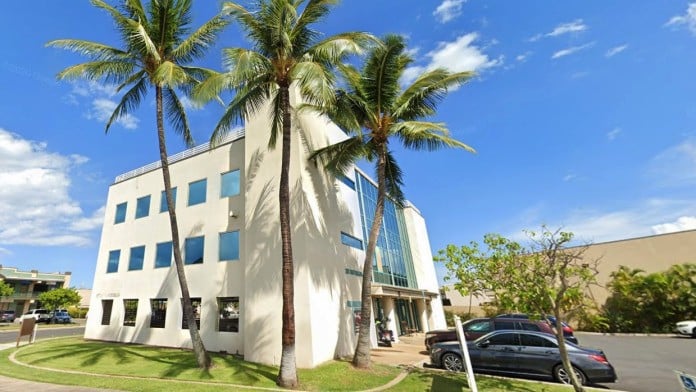
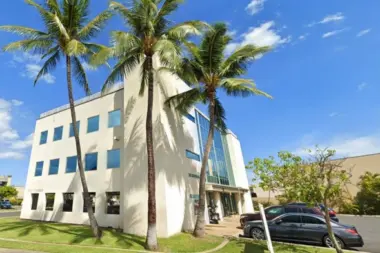
Other Forms of Payment
Military members, veterans, and eligible dependents have access to specific insurance programs that help them get the care they need. TRICARE and VA insurance can help you access low cost or no cost addiction and mental health treatment. Programs that accept military insurance often have targeted treatment focused on the unique challenges military members, veterans, and their families face.
Medicaid is a state based program that helps lower-income individuals and families pay for healthcare. Medicaid covers addiction treatment so those enrolled can use their coverage to pay for rehab. When a program accepts Medicaid the client often pays very little or nothing out of their own pocket.
Medicare is a federal program that provides health insurance for those 65 and older. It also serves people under 65 with chronic and disabling health challenges. To use Medicare for addiction treatment you need to find a program that accepts Medicare and is in network with your plan. Out of pocket costs and preauthorization requirements vary, so always check with your provider.
Sliding scale payments are based on a client's income and family size. The goal is to make treatment affordable to everyone. By taking these factors into account, addiction recovery care providers help ensure that your treatment does not become a financial burden to you or your family, eliminating one barrier to care.
Self-pay involves paying for treatment out of your own pocket. You can use savings or credit, get a personal loan, or receive help from family and friends to fund your treatment. If you don't have insurance or your insurance plan doesn't cover a specific program, self-pay can help ensure you still get the care you need.
Financial aid can take many forms. Centers may have grants or scholarships available to clients who meet eligibility requirements. Programs that receive SAMHSA grants may have financial aid available for those who need treatment as well. Grants and scholarships can help you pai for treatment without having to repay.
Private insurance refers to any kind of healthcare coverage that isn't from the state or federal government. This includes individual and family plans offered by an employer or purchased from the Insurance Marketplace. Every plan will have different requirements and out of pocket costs so be sure to get the full details before you start treatment.
Addiction Treatments
Levels of Care
Outpatient Programs (OP) are for those seeking mental rehab or drug rehab, but who also stay at home every night. The main difference between outpatient treatment (OP) and intensive outpatient treatment (IOP) lies in the amount of hours the patient spends at the facility. Most of the time an outpatient program is designed for someone who has completed an inpatient stay and is looking to continue their growth in recovery. Outpatient is not meant to be the starting point, it is commonly referred to as aftercare.
Treatments
Many of those suffering from addiction also suffer from mental or emotional illnesses like schizophrenia, bipolar disorder, depression, or anxiety disorders. Rehab and other substance abuse facilities treating those with a dual diagnosis or co-occurring disorder administer psychiatric treatment to address the person's mental health issue in addition to drug and alcohol rehabilitation.
Mental health rehabs focus on helping individuals recover from mental illnesses like bipolar disorder, clinical depression, anxiety disorders, schizophrenia, and more. Mental health professionals at these facilities are trained to understand and treat mental health issues, both in individual and group settings.
Programs
Adult rehab programs include therapies tailored to each client's specific needs, goals, and recovery progress. They are tailored to the specific challenges adult clients may face, including family and work pressures and commitments. From inpatient and residential treatment to various levels of outpatient services, there are many options available. Some facilities also help adults work through co-occurring conditions, like anxiety, that can accompany addiction.
Young adulthood can be an exciting, yet difficult, time of transition. Individuals in their late teens to mid-20s face unique stressors related to school, jobs, families, and social circles, which can lead to a rise in substance use. Rehab centers with dedicated young adult programs will include activities and amenities that cater to this age group, with an emphasis on specialized counseling, peer socialization, and ongoing aftercare.
Recovery is most successful when clients feel accepted and validated by their peers and treatment providers. Facilities that offer LGBTQ-inclusive programming are committed to creating a safe space where everyone can grow and recover without fear of judgment or discrimination. They will have dedicated policies in place to create a safe and supportive environment that fosters free expression.
Serving in the military is both mentally and physically challenging, and can result in trauma that persists even after combat ends. Military programs are tailored to the specific and often complex needs of active duty personnel, veterans, and military families. Clients often access these programs through the U.S. Department of Veterans Affairs (VA).
Clinical Services
During cognitive behavioral therapy in Hawaii, patients learn about their mental and behavioral health conditions and then learn techniques to help them change their patterns of thinking and behavior. Tools such as stress management, coping, and assertiveness are used to break free from patterns of substance abuse.
Within a group therapy environment, people can see other individuals walk through a successful recovery and model behaviors that provide them with inspiration and practical examples of how to manage their addiction and maintain their sobriety within the community.
In individual therapy, a patient meets one-on-one with a trained psychologist or counselor. Therapy is a pivotal part of effective substance abuse treatment, as it often covers root causes of addiction, including challenges faced by the patient in their social, family, and work/school life.
Trauma therapy addresses traumatic incidents from a client's past that are likely affecting their present-day experience. Trauma is often one of the primary triggers and potential causes of addiction, and can stem from child sexual abuse, domestic violence, having a parent with a mental illness, losing one or both parents at a young age, teenage or adult sexual assault, or any number of other factors. The purpose of trauma therapy is to allow a patient to process trauma and move through and past it, with the help of trained and compassionate mental health professionals.
Whether a marriage or other committed relationship, an intimate partnership is one of the most important aspects of a person's life. Drug and alcohol addiction affects both members of a couple in deep and meaningful ways, as does rehab and recovery. Couples therapy and other couples-focused treatment programs are significant parts of exploring triggers of addiction, as well as learning how to build healthy patterns to support ongoing sobriety.
Sometimes, as part of a Veteran’s treatment, some members of the Veteran’s immediate family or the Veteran’s legal guardian may be included and receive services, such as family therapy, marriage counseling, grief counseling, etc. Family members might learn how to recognize symptoms and support recovery. In some treatment settings, a brief course of couples counseling or family therapy may be offered.
Nicotine Replacement Therapy (NRT) is a way of getting nicotine into the bloodstream without smoking. It uses products that supply low doses of nicotine to help people stop smoking. The goal of therapy is to cut down on cravings for nicotine and ease the symptoms of nicotine withdrawal.
Staff & Accreditations
Staff
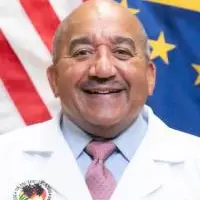
Dr. Adam M. Robinson, MD, MBA, FACS, FASCRS, CPE
Director

Arun Raman, MD, MBA, FACS, FACHE, CPE
Chief of Staff
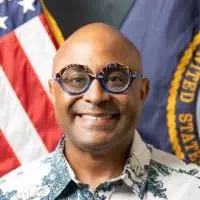
Devin C. Woods
Associate Director

Kathrine Pope, MSN, RN-BC
Nurse Executive
Accreditations

The Joint Commission, formerly known as JCAHO, is a nonprofit organization that accredits rehab organizations and programs. Founded in 1951, the Joint Commision's mission is to improve the quality of patient care and demonstrating the quality of patient care.
Joint Commission Accreditation: Yes
Accreditation Number: 66
Contact Information
203 Hoohana Street
Suite 303
Kahului, HI 96732
